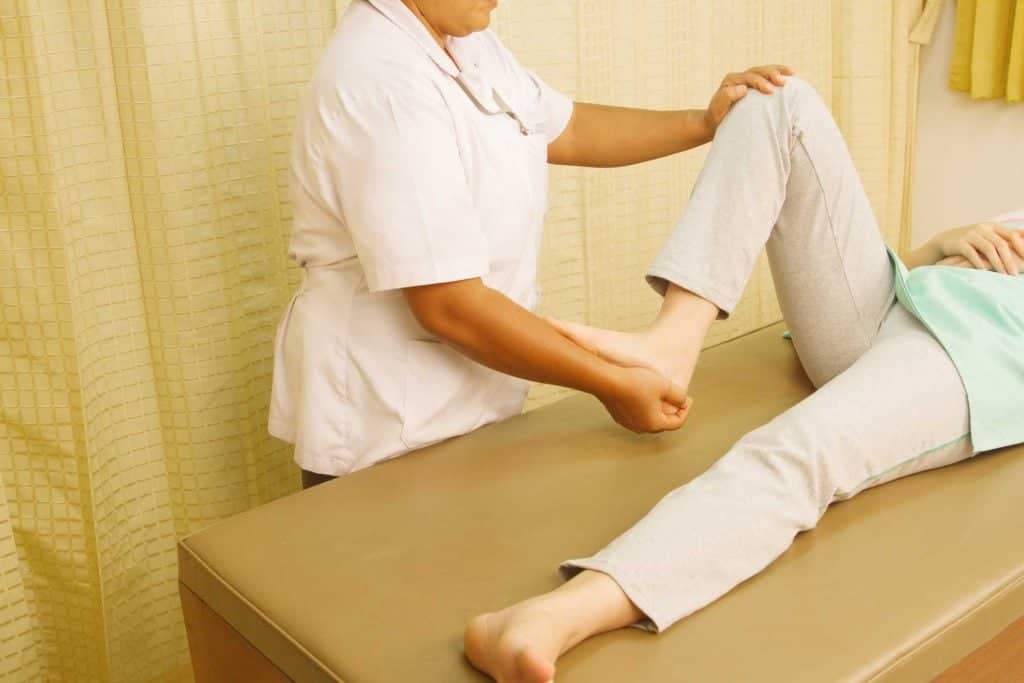
Muscle weakness is the loss of strength in one or more muscle groups in the body. There are various factors, considerations, and conditions that lead to loss of muscle function. Causes can be a lack of muscle fitness, damaged neuromuscular system, body injuries, or aging.
Kinds of muscles weakness
Muscle weakness can be mild or severe and can range from different feelings of tiredness and fatigue. Here’s an outlook of the condition.
Muscle fatigue
Muscle fatigue happens when the organ starts to perform naturally but tires very quickly and can’t recoup normally than it is. There are some conditions that cause this type of weakness: not using muscles, myotonic dystrophy, or injury.
Muscle tiredness
Also called asthenia, muscle tiredness is the feeling of exhaustion after using the muscle. It’s a condition often seen in people who have sleep problems, severe daytime fatigue, and heart disease to name a few.
General muscle weakness
The condition is an inability to perform due to muscle weakness. However you can exert, it’s always hard to instill movement. People with muscular dystrophy likely experience overall muscle weakness.

What causes muscle weakness?
Some underlying conditions can cause muscle weakness. Meanwhile, other factors like aging, infections, medications, and sleep problems also contribute to muscle weakness.
Aging
It’s normal that as we age, our muscles lose build-up and strength as they become weaker. It’s a natural consequence that comes as we grow older, but it can be pretty frustrating, especially when doing everyday activities and routines. With aging, comes the high probability of injuries. That can be a problem since muscle recovery is slower.
Injuries
Trauma from injuries that resulted in muscle can cause swelling and inflammation. When this happens, it’ll make the muscle weak and render it painful to use. Chronic injury from accidents, sports, or inflammation can lessen the muscles unless physical therapy can help.
Sleep problems
Sleep loss can lead to chronic fatigue which affects the muscle performance of your body. Disorders such as insomnia, hypersomnia, pain, depression, anxiety, restless leg syndrome, or injury can lead to sleepless nights and affect your health in the morning.
Diseases
Whether it was triggered by an infection or not, medical conditions such as anemia, diabetes, or heart disease muscle weakness. This is mainly due to the reduced circulation of blood and nutrients in the body. Other conditions such as fibromyalgia, hypothyroidism, or chronic fatigue syndrome can also cause muscle weakness.
Dehydration
Severe dehydration can cause muscle tiredness. The more you are dehydrated, the more you lose electrolytes which can make your muscles cramp at night. Electrolytes are nutrients such as sodium, calcium, and potassium found in your body fluids. They are needed to maintain healthy muscle function, including growth and repair.
Symptoms of muscle weakness
Oftentimes, muscle weakness serve as an overwhelming feeling of tiredness. However, there are certain symptoms that underlay severe conditions such as:
- Numbness
- Loss of consciousness
- Difficulty in breathing
- Confusion and mental unclearness
- Difficulty in basic movements such as standing, sitting, or walking

Treatment of muscle weakness
Once doctors have ruled the reasons for your muscle weakness, they will recommend the appropriate treatment for you. Whether it’s via physical therapy or medications and lifestyle changes, here are some treatments they often recommend:
Physical therapy
Invest in programs or health services and rehabilitation support for on-going care. This includes physical therapy, psychologist, dietitian, or physiatrist for muscle weakness.
The support usually emphasizes on strengthening muscle functions, coordination, and motor skills, or reintegration day-to-day tasks. Oftentimes, you’ll use equipment to help you resume your everyday life such as wheelchairs, electronic aids, stimulation devices, and gait training.
Get an adjustable bed
About 1,200 Australians suffer from motor neuron disease, with 400 cases every year which causes muscle weakness. However, with adjustable beds, you decrease the stress on your body by distributing weight evenly on the mattress.
What’s more, if you use a foam mattress, it boosts natural body contouring to pressure points.
Dietary changes
Patients with muscle weakness report of feeling better if they follow a certain diet. For instance, eating a lot of vegetables and healthy lean meat intake reduces muscle tiredness. Cutting sugars and drinking lots of water also prevent symptoms from getting worse.
What’s more, this dietary lifestyle allows you to intake proteins necessary for muscle growth, recovery, and recharge.
Meditation and routines
Anxiety and depression can often lead to restless nights. It’ll also cause your brain to mess up the signals on your pain receptors. Try relaxation therapies or meditation to ease the mind and body of stress. You can try deep breathing exercises or listen to peaceful music.
People who suffer from stress and anxiety will find it beneficial to instill relaxing activities at night. You can wind down and take a warm bath, read a book, or write a journal to take off heavy feelings. Try meditating for at least five minutes. It can help boost your mind and sleep quality.
Exercise
Exercise has plenty of health benefits for you physically and mentally. It can help you lose weight, reduce anxiety and stress, and boost your immune system. What’s more, it promotes deep sleep.
Physical activity can help you lose weight and regulate much of the body’s internal rhythm for a night of restorative sleep. Exercise burns your calories and keeps your blood sugar at a healthy level. It contributes to weight maintenance and fat loss to ensure you with a healthy weight.



